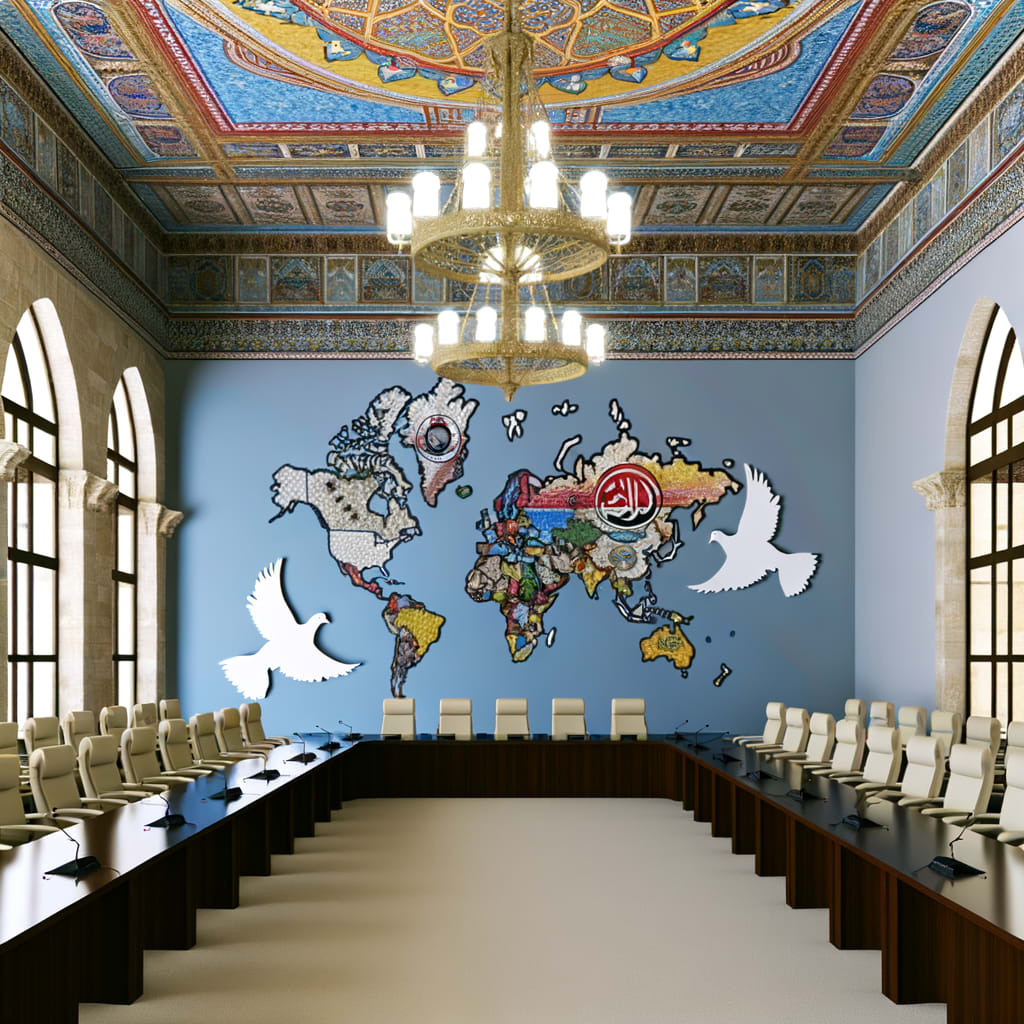Western Countries Recognize Palestine Statehood; Israel Faces Global Opposition
In a significant geopolitical shift, several Western countries, led by France and the United Kingdom, have recognized Palestinian statehood, causing a stir in the international community. These recent recognitions, however, do little to alter the on-ground situation in Palestine and may intensify the conflict in the Middle East.
Recognition of Statehood
A group of Western countries, including Britain, Canada, Australia, and a set of EU members led by France, have acknowledged Palestinian statehood, citing the need to uphold the principle of two states in historic Palestine, one Jewish and one Arab, as reported by RT. This decision is seen as a symbolic victory for the Palestinian Authority leaders who have been lobbying for years for this recognition. However, Israel has denounced this move as an endorsement of terrorism and a hindrance to negotiations over the release of hostages.
Global Opposition to Israel
This recognition of Palestinian statehood comes at a time when Israel is facing increasing international condemnation. As The Times of Israel reports, Israel is nearing a tipping point of isolation due to accusations of genocide, Palestinian recognition, ICC warrants, cultural boycotts, and possible sanctions. La Repubblica also notes that Israel has lost the media war and no longer has a respected voice in the international community.
In addition to the recognition of Palestine, there has also been criticism of Israel's territorial expansion. The Guardian reports that Australian PM Anthony Albanese has warned Israeli Prime Minister Benjamin Netanyahu that any move to expand Israeli settlements in the West Bank risks putting a two-state solution permanently beyond reach.
On-ground Reality
Despite diplomatic developments, the situation on the ground remains unchanged. Al Jazeera English highlights that while more countries recognize the State of Palestine, Israel now controls more Palestinian territory than ever. The outlet also reports on continued clashes, with Israeli soldiers accused of shooting and detaining Palestinians.
Implications and Reactions
The recognition of Palestine, as per the Tehran Times, appears to be driven more by mounting domestic and international pressure than by genuine humanitarian concern. This could escalate tensions in West Asia, already inflamed due to recent clashes between Israelis and Palestinians.
The Hindu reports that U.N. Chief António Guterres has warned of an age of reckless disruption and relentless human suffering
and urged nations to choose between peace or war, law or lawlessness, cooperation or conflict.
Conclusion
While the recognition of Palestine by Western countries marks a diplomatic victory for the Palestinian Authority, it does little to resolve the ongoing conflict on the ground. The international community's isolation of Israel and criticism of its policies are escalating tensions, pushing the region further towards conflict. However, the broader implications of these developments remain uncertain.

